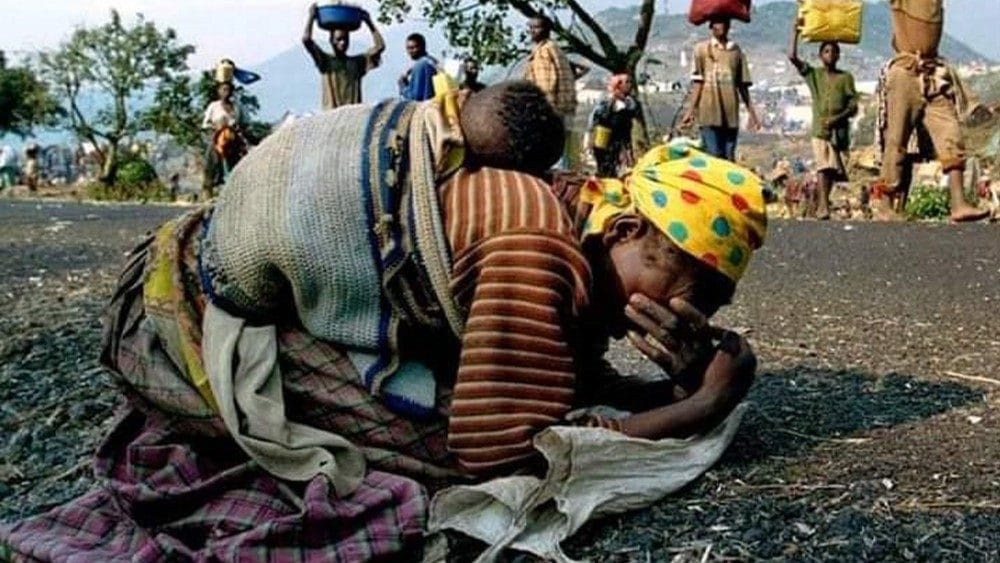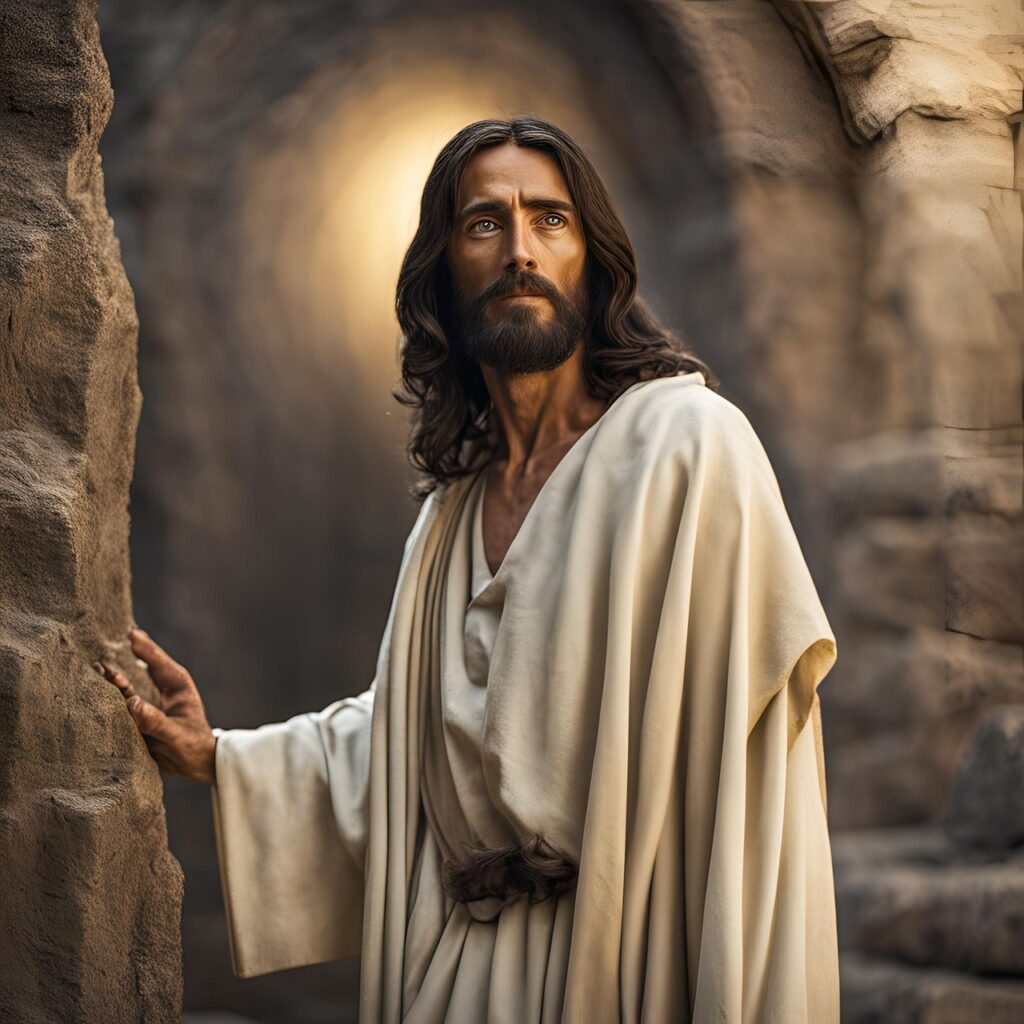For your sakes Christ became poor
Intervention of Archbishop Rino Fisichella

At 11.30 this morning, at the Holy See Press Office, a press conference was held to present the Holy Father Francis’ Message for the 6th World Day of the Poor, to be celebrated on Sunday 13 November 2022, on the theme “For your sakes Christ became poor (cf. 2 Cor 8-9).
The speakers were Archbishop Rino Fisichella, titular of Voghenza, and Msgr. Graham Bell.
The following is the intervention of Archbishop Rino Fisichella:
***
“So many people are made poor by the senselessness of war!” (N.2). Without doubt, this cry embodies Pope Francis’ Message for the sixth World Day of the Poor, which this year falls on November 13. The gaze of those who read this text is inevitably fixed on the sad events that have been unfolding in recent months and that will still hold entire populations under the shackles of fear and war in the coming weeks. No one can escape the Pope’s daily appeal to the world to become aware of the consequences that war produces. There are the more immediate ones that create millions of refugees and “the deportation of thousands of people, especially boys and girls” (N. 2) who are uprooted from their land, their culture with its traditions, and their very language in order to impose on them a foreign identity that is the result of contrivance and oppression. In just a few lines we are met with a description of violence and pain that cannot leave us at peace: “There are millions of women, children, and the elderly who are forced to brace the danger of bombs in order to get to safety … every day they live with fear and the lack of food, water, medical care, and above all, their loved ones” (No. 2).
But there are consequences that come from prolonged wars that also create great hardship and suffering among neighboring peoples who, because of global resource dependence, suffer inevitable hardship and sacrifice. The Message does not dispel this condition, which is described accurately: “The longer the conflict goes on, the more its consequences worsen. Those welcoming people are increasingly struggling to provide continuity of relief; families and communities are beginning to feel the weight of a situation that goes beyond an emergency. Now is the time not to give in but to renew the initial motivation. What we have started needs to be brought to completion with the same responsibility” (No. 4).
In his straight forward style, Pope Francis speaks frankly without giving concessions to anyone, going straight to the heart of the issue: “In the face of the poor, there is no rhetoric, but we roll up our sleeves and put faith into practice through direct involvement, which cannot be delegated to anyone” (No. 7). His thought is developed in three steps that make it possible to outline a path of proactive involvement and responsible solidarity. The first is to reject any form of “laxity that leads to incoherent behavior, such as indifference to the poor” (No. 7). It is a recurring theme in the Pope’s magisterium because it is a cultural condition that is the result of extreme secularism that confines people inside a Chinese wall no longer with a sense of social responsibility, under the illusion of living a happy but actually a short-lived and groundless existence. Pope Francis speaks of the “slumber of indifference” from which it is imperative to wake up through a commitment to charity: “Those who are indifferent see everything the same, as if it were night, and are unconcerned about those all around them. When everything revolves around us and our needs, and we are indifferent to the needs of others, night descends in our hearts. Our hearts grow dark. We immediately begin to complain about everything and everyone; we start to feel victimized by everyone and end up brooding about everything. It is a vicious circle. Nowadays, that night seems to have fallen on so many people, who only demand things for themselves and are blind to the needs of others. How do we rouse ourselves from the slumber of indifference? With the watchfulness of charity… Charity is the beating heart of the Christian: Just as one cannot live without a heartbeat, so one cannot be a Christian without charity. Some people seem to think that being compassionate, helping and serving others is for losers! Yet these are the only things that win us the victory, since they are already aiming towards the future, the day of the Lord, when all else will pass away and love alone will remain” (Homily Nov. 29, 2020).
The second step is to take on solidarity as a way of social and Christian commitment: “Solidarity, in essence, is just that: sharing the little we have with those who have nothing, so that no one suffers. The more the sense of community and fellowship grows as a way of life, the more the sense of solidarity develops… As members of civil society, we keep alive the call to the values of freedom, responsibility, fellowship and solidarity. And as Christians, we always find in charity, faith and hope the foundation of our being and acting” (No. 5). Pope Francis’ analysis on this perspective is not without concrete references. Indeed, in recent decades many countries, through laws that have encouraged family policies and supported social projects, have achieved real economic breakthroughs that have led to “significant growth for so many families that have attained a secure state of life” (No. 5). So, the time has come for the sharing of this “patrimony of security and stability” (No. 5), so that no one has to find themselves in destitution and poverty. A responsible involvement that leaves behind the various forms of welfare that are too easy to pursue and without real effectiveness for people’s dignity (cf. no. 7), in order to embrace a behavior that is empowered by the “sincere and generous attention that makes it possible to approach a poor person as a brother who stretches out his hand so that I may be roused from the stupor into which I have fallen” (No. 7). This requires a watchfulness capable of judging the true value of money. This is an important note because Pope Francis shows himself to have a deep understanding of the human heart when he notes, “the problem is not money itself, because it is part of people’s daily lives and social relationships. Rather, what we need to reflect on is the value that money has for us: it cannot become an absolute, as if it were the main purpose. This type of attachment prevents us from looking realistically at everyday life and blurs our vision, preventing us from seeing the needs of others. Nothing more detrimental could happen to a Christian and a community than to be blinded by the idol of wealth, which eventually shackles one to an ephemeral and self-defeating view of life” (No. 7).
The third step becomes pro-active with the image that will orient believers in the sixth World Day of the Poor. This is the quotation from Paul’s Second Letter to the Christians in Corinth: “Our Lord Jesus Christ, though he was rich, yet for your sakes he became poor” (2 Cor 8:9). The context of the apostle’s letter is that of raising funds to support the poor in the Jerusalem community. The Corinthians had immediately joined this initiative with enthusiasm, but as time went on, they grew weary and became less generous. This is a situation that is repeated over time and that manifests more the emotion with which one reacts in the face of poverty than the responsibility of making a tangible choice to make a commitment that does not cease or tire. Christian witness, therefore, needs to be sustained by the example that Jesus himself gave: “true wealth does not consist in accumulating «treasures on earth, where moth and rust consume and where thieves break in and steal» (Mt 6:19), but rather in the mutual love that enables us to bear one another’s burdens so that no one is abandoned or excluded” (No. 8).
It is essential to gain strength from the experience of the past two years that has enabled everyone, no one excluded, to experience a form of poverty such as weakness, a sense of limitation, fear, lack of affection, and so much more, in order to grasp something truly essential for life: “we are not in the world to survive, but so that everyone may be afforded a worthy and happy life. Jesus’ message shows us the way and makes us discover that there is a poverty that humbles and kills, and there is another poverty, his own, that frees and gives us peace” (No. 8). The first is easily to recognize because we are faced with it in the most varied forms; it is “misery, the result of injustice, exploitation, violence and the unjust distribution of resources. It is desperate poverty, devoid of a future, because it is imposed by the throwaway culture that grants no future perspective or way out. It is misery that, while forcing one into the condition of extreme destitution, also erodes the spiritual dimension, which, although often neglected, does not mean it does not exist or does not count. When the only law becomes the calculation of profit at the end of the day, then there is no longer any restraint in adopting the rationale of exploiting people: others are just means. There are no longer just wages, just working hours, and new forms of slavery are created, suffered by people who have no alternative and have to accept this kind of injustice in order to scrape together the minimum for their survival” (No. 8). On the contrary, the second one is the most paradoxical and often unthinkable to pursue for our modern times, and yet, it is the one that is freeing because “it is placed before us as a responsible choice to lighten the burden and focus on the essential. Actually, one can easily detect that sense of dissatisfaction that many people experience because they feel that they are missing something important and go in search of it like aimless wanderers. Longing to find that which might fulfill them, they need to be directed to the lowly, the weak, the poor to finally understand what they really need. Encountering the poor enables them to put an end to so many groundless anxieties and fears, to finally land on what really matters in life and that no one can steal from them: true and gratuitous love. Before being the object of our almsgiving, the poor are actually those who help to free us from the bonds of restlessness and superficiality” (N. 8).
Pope Francis shows that this choice is possible and real with the example of St. Charles de Foucauld “a man who, born rich, renounced everything to follow Jesus and become poor and a brother to all with Him ” (No. 10). A man of our times who humanly did not see the fruits his holiness bore and yet went down in history for his choice to be poor. Therefore, it is from these pages that the commitment of the local churches will unfold for the celebration of the sixth World Day of the Poor, which every year becomes more and more rooted in the hearts of Christians all over the world with the most varied initiatives, fruit of the creative charity that animates and arouses the commitment of faith.
Through the efforts of the Dicastery for Evangelization in the section responsible for this World Day, Pope Francis will mark this occasion with the traditional Eucharistic Celebration on Sunday, November 13, as well as the various initiatives which throughout the previous week will reach out to the many forms of poverty in his Diocese of Rome. Last year, 5,000 families were reached who received an over-the-counter medicine kit to cope with the pandemic and various seasonal illnesses, offered by Angelini Pharma S.p.A., Procter & Gamble and Regia Congressi. Tons of food supplies (basic necessities such as oil, salt, sugar, tomato puree, coffee, milk, rice, … ) were also distributed, obtained through the generosity of the Fedeli Family of Supermercati Elite and the Ferro family of La Molisana pasta. Similar solidarity was extended by Unipol Sai, which made it possible to pay water, electricity, gas, insurance and rent bills for 500 families, because unemployment and various circumstances had made it impossible to pay, putting them at risk of facing inhumane living conditions. All told, this and much more was made possible, and we hope it will continue to be so, as so many people took up the invitation to be generous, just as when early in our history the apostle addressed the first Christians not to make it a command but rather to make everyone more sensitive to the needs of brothers and sisters living in hardship and poverty.
Related

Reflection by Bishop Enrique Díaz: The Lord’s mercy is eternal. Alleluia
Enrique Díaz
27 April, 2025
5 min

After Eight Days Jesus Arrived: Commentary by Fr. Jorge Miró
Jorge Miró
26 April, 2025
3 min

The Perspectivas del Trabajo Foundation is founded with the aim of promoting virtues for professional development
Exaudi Staff
25 April, 2025
2 min

Reflection by Bishop Enrique Díaz: Alleluia, alleluia
Enrique Díaz
20 April, 2025
5 min
 (EN)
(EN)
 (ES)
(ES)
 (IT)
(IT)

